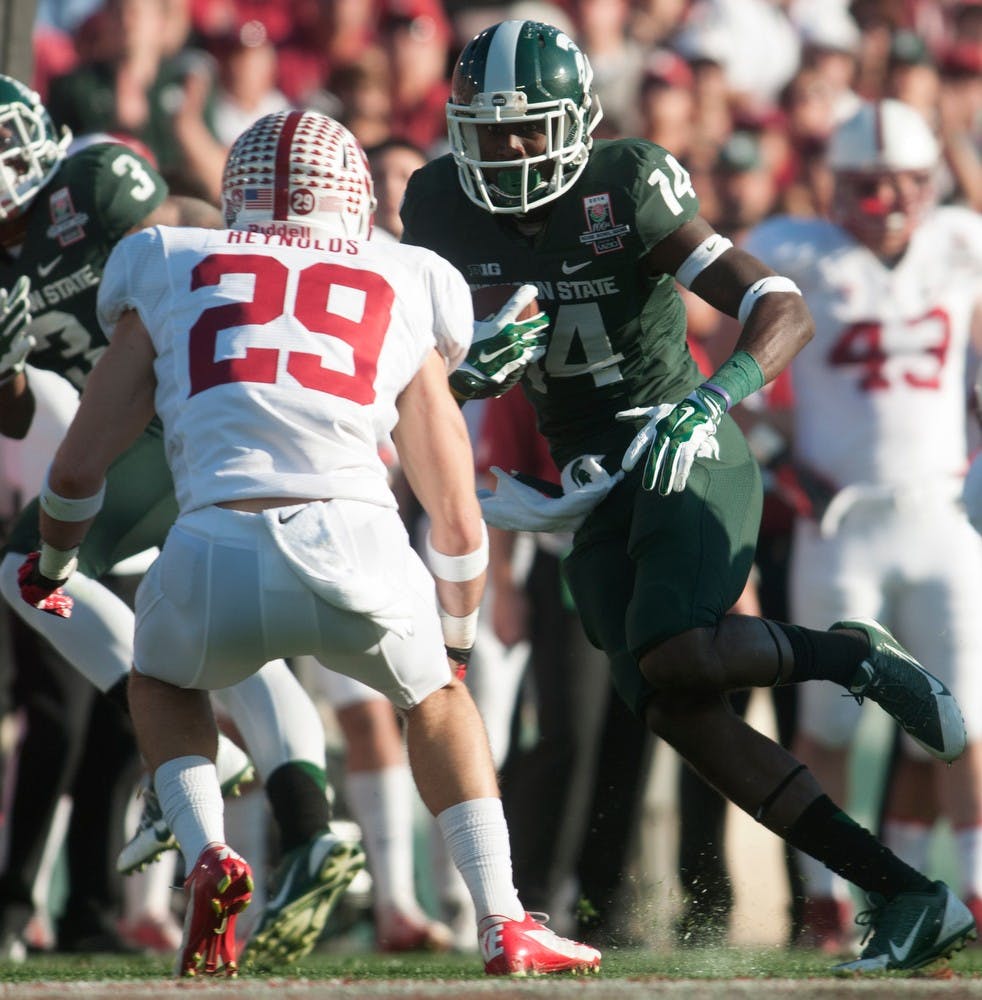A familiar foe could be the answer for No. 7 MSU in its top-ten matchup against No. 3 Oregon this Saturday at Autzen Stadium.
Oregon is 27-3 in its last 30 games, but Stanford is responsible for two of those losses, a team on paper that’s similar to MSU and a team the green-and-white is plenty of familiar with after last year’s Rose Bowl.
Oregon head coach Mark Helfrich said earlier this week during a teleconference that he doesn’t see any Pac-12 teams comparable to the Spartans, including Stanford, but MSU head coach Mark Dantonio disagrees.
“Stanford's offense is ... a little bit more like us maybe than some of the other football teams, so you can certainly see some of the things that they did there,” Dantonio said.
In both of Stanford’s back-to-back wins over Oregon, time of possession was a game-changing factor. Stanford dominated the time of possession, holding the ball for nearly 38 minutes in 2012 and more than 42 minutes in 2013.
The possession battle will be something MSU focuses on this weekend against the Ducks, and could serve as the most important aspect of the game. Co-offensive coordinator and tight ends coach Jim Bollman said controlling the tempo of the game is more important than the ground game production.
“Keeping the ball is more important than running the ball,” Bollman said. “If you ask people in that type of offense they won’t really care about any possession time. They don’t think that’s a factor, but I think it’s certainly helpful to our defense if we can possess the ball.”
Having the Spartan offense hold onto the ball is just as important for the Spartans defense for multiple reasons. While providing time to rest for the defense will be crucial for Sparty on Saturday, disrupting Oregon junior quarterback Marcus Mariota’s flow is just as beneficial.
The Heisman Trophy candidate struggled last season against Stanford, finishing with -16 rushing yards and only 250 passing yards. Defensive coordinator Pat Narduzzi said Mariota couldn’t post his usual ground game numbers because Oregon fell behind early and didn’t have enough time to establish the run.
“They got pressure on the quarterback, they zone blitzed him a little bit, but they didn’t have the ball very often so they got behind and had to throw and not run it,” Narduzzi said.
While the time of possession battle worked for Stanford, junior cornerback Trae Waynes pointed out that MSU is more athletic than recent Stanford teams. Waynes said MSU will need to make adjustments to control the clock, but won’t stray too far away from what’s gotten them to this point.
“Stanford won the time possession game, their offense was on the field more and that was the big plus for them and gave their defense a lot of rest,” Waynes said. “That’s one thing I took out of it.
"In a different sense we’re not Stanford, so we’re fast too. So we’re going to play with our strengths and hope it works out.”
Support student media!
Please consider donating to The State News and help fund the future of journalism.
Discussion
Share and discuss “Stanford could provide model for success as MSU football prepares for Oregon on Saturday” on social media.







